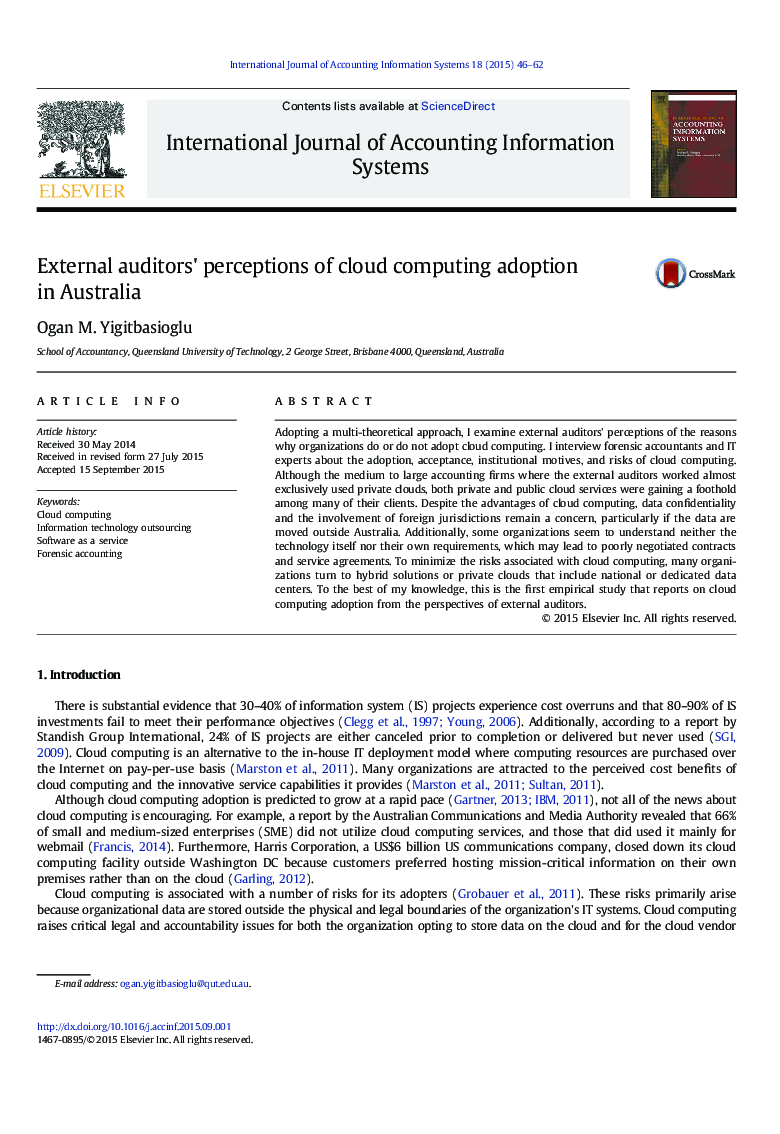| Article ID | Journal | Published Year | Pages | File Type |
|---|---|---|---|---|
| 1005381 | International Journal of Accounting Information Systems | 2015 | 17 Pages |
•IT experts and forensic accountants' perceptions on motives, benefits, and risks of cloud•Mid to large accounting firms predominantly used private cloud rather than public cloud.•Private clouds or hybrid solutions are preferred configurations for larger firms.•Data confidentiality and foreign legislation are main barriers to public cloud.•Poorly negotiated contracts and service level agreements can diminish benefit of cloud.
Adopting a multi-theoretical approach, I examine external auditors' perceptions of the reasons why organizations do or do not adopt cloud computing. I interview forensic accountants and IT experts about the adoption, acceptance, institutional motives, and risks of cloud computing. Although the medium to large accounting firms where the external auditors worked almost exclusively used private clouds, both private and public cloud services were gaining a foothold among many of their clients. Despite the advantages of cloud computing, data confidentiality and the involvement of foreign jurisdictions remain a concern, particularly if the data are moved outside Australia. Additionally, some organizations seem to understand neither the technology itself nor their own requirements, which may lead to poorly negotiated contracts and service agreements. To minimize the risks associated with cloud computing, many organizations turn to hybrid solutions or private clouds that include national or dedicated data centers. To the best of my knowledge, this is the first empirical study that reports on cloud computing adoption from the perspectives of external auditors.
